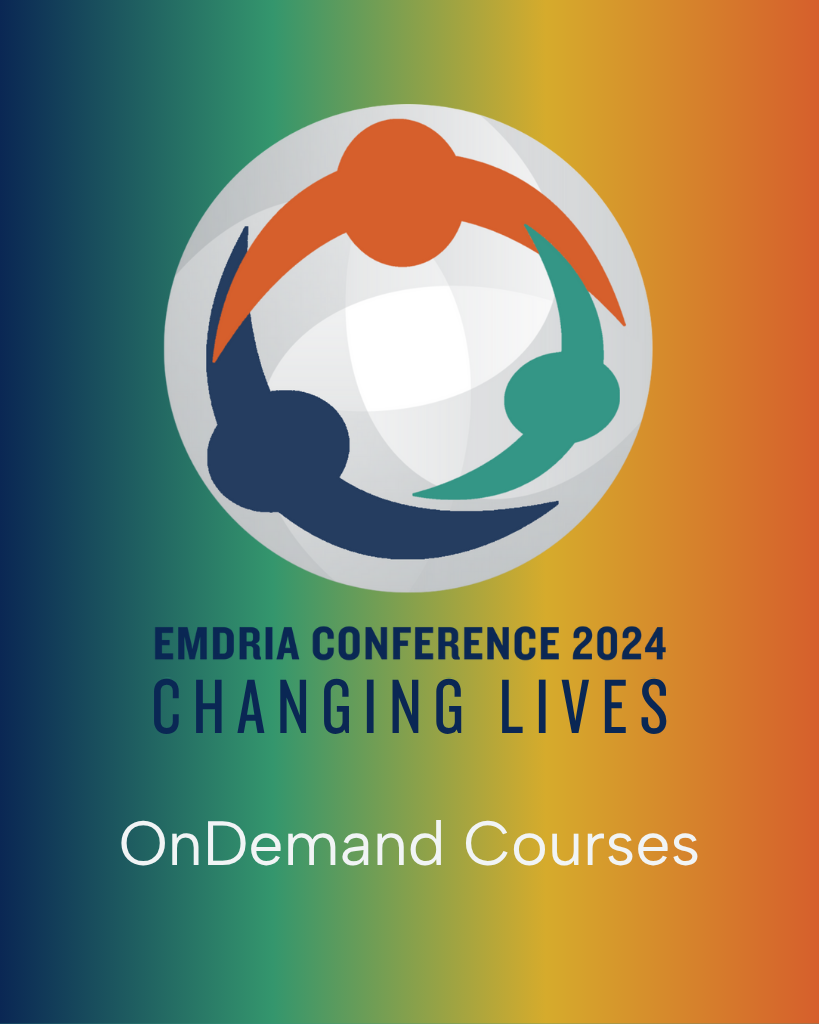Course Description
This presentation focuses on three key areas of EMDR with an attachment- and survival-informed perspective: case conceptualization, session structure, and the use of imaginal and creative interweaves. Consistent with the EMDRIA definition of EMDR, these tools developed over nearly a decade of workshops with approaching 1000 attendees, identify and target – beyond trauma – primarily the client’s formative early-life experiences which underpin their presenting challenges. These experiences can be identified and reworked therapeutically with creative interweaves that rewire the client’s formative narratives at levels well beyond the cognitive, including “session-within-a-session” work to address emotional and behavioral patterns handed down through generations. Attachment-informed EMDR is contained within a tight session structure, enabling clinicians to retain close reparative focus on specific past experiences – not always trauma – that need attention. Focusing on these three key areas of AI-EMDR, the presentation will demonstrate the power of this adaptable and possibly game-changing approach.
Learning Objectives
- Participants will be able to apply the principles of attachment-informed Case Conceptualization significantly to enhance EMDR’s effectiveness with complexity, specifically by using ‘radical curiosity’ and proactive bridging (Parnell) to identify and target clients’ maladaptive narratives, in the context not just of trauma but primarily of formative early-life experiences (Mate).
- Participants will be able to describe the architecture of attachment-informed EMDR sessions; the “Charlie Chaplin” mnemonic starting with Case Conceptualization (CC), ending with Session Structure (SS). They will also utilize the metaphor of the DeLorean as vehicle taking the work back into and again out of the client’s formative past.
- Participants will be able to apply extended transpersonal interweaves in EMDR’s Phase Four, identifying their pivotal role in a proactive rewiring that is balanced with Adaptive Information Processing (AIP). They will use careful pacing, navigating space between staying out of the way or pressing too early for resolution, thus ensuring deep, transformative healing.
Presenter(s)
Mark Brayne, MA
Mark Brayne, MA, is an EMDR Europe-Accredited and EMDRIA-Approved Consultant specializing in EMDR with an Attachment-Informed perspective. As a former Reuters and BBC foreign correspondent (postings in Russia, China and Eastern Europe), he established the BBC’s journalistic trauma support program. He was also the founding director of the Dart Centre Europe for Journalism and Trauma. A former member of the Board of the European Society for Traumatic Stress Studies and a pioneer in delivering EMDR online internationally, Mark is the Director of EMDR Focus Ltd, working with individual clients internationally and offering online workshops in EMDR for attachment-informed complexity.
Date
September 14, 2024
Presented by
Mark Brayne
Run Time
180 minutes
EMDRIA Credits
3
NBCC Credits
3
Topics
Attachment, Intergenerational Trauma
Practice & Methods
Case Conceptualization, Techniques
Cost (member)
$70
Cost (nonmember)
$95
Publisher
EMDR International Association
Rights
The presenter(s) retains control over the publishing and copyright of this presentation/course.
APA Citation
Brayne, M. (2024, September 14). Trauma, Attachment and Formative Experience: An EMDR Paradigm Shift? [Online Course]. EMDR International Association. https://www.pathlms.com/emdria/courses/106967
Audience
EMDR Therapists
Language
English
Content Type
Course
Original Source
Conference 2024, OnDemand Education
Access Type
Paid Access


